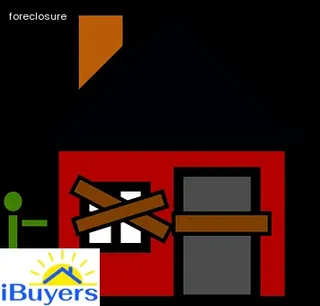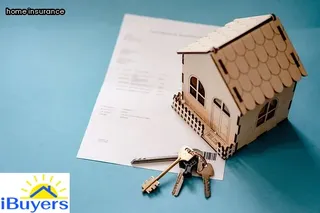When facing a foreclosure from an HOA or COA in Texas, there are several key considerations to take into account. First, it's important to understand the specifics of Texas property laws and how they relate to HOAs and COAs in the state.
There are different rules for each HOA and COA regarding foreclosure processes, so it's important to familiarize yourself with the specific regulations that apply to your situation. Additionally, homeowners should be aware of any potential legal options available to them if they're unable to pay their dues or mortgage payments on time.
Finally, it's important to consider the financial implications of a foreclosure in Texas; including any additional fees or costs that may come with a foreclosure from an HOA or COA. Knowing these factors is key when considering whether or not an HOA or COA can foreclose on a house in Texas.

Texas homeowners should be aware of the consequences of unpaid HOA or COA assessments in order to avoid foreclosure. By Texas law, an HOA or COA has the right to foreclose on a house if the assessments are not paid in a timely manner.
When a homeowner is delinquent in their assessment payments, they may receive an official notice from their association stating that they are in default. If payments are still not made, the association may file a lien against the property and then pursue foreclosure proceedings.
Homeowners should take action as soon as they receive any notices regarding delinquent assessments to prevent foreclosure and protect their home. It is also important to know one's rights as a homeowner when it comes to dealing with HOAs and COAs, such as being able to request a payment plan or challenge certain fees that may have been charged by the association.
Taking the time to understand these laws can help homeowners stay informed about potential risks associated with unpaid assessments and foreclosures in Texas.
When a homeowner falls behind on their payment of assessments to their Homeowners’ Association (HOA) or Condominium Owners’ Association (COA), the community is put in jeopardy. To ensure the sustainability of the community, it’s important for HOAs and COAs to collect overdue assessments from homeowners.
The process of collecting these overdue assessments may vary from state to state; in Texas, HOAs have the right to foreclose on a home if payments are not made on time. HOAs typically send out warning letters before beginning foreclosure proceedings, but it’s important for homeowners to be aware of the potential consequences of failing to pay their dues.
If a homeowner fails to make their payments, they may be subject to late fees, interest charges, collection costs and even legal fees should they choose to contest the HOA’s right to foreclose. In some circumstances, an HOA or COA can also place liens against the property until all outstanding assessments are paid in full.
Ultimately, if a homeowner does not pay their assessments and all associated costs, foreclosure is always an option for HOAs and COAs in Texas.

In Texas, Homeowner Associations (HOAs) and Community Owners Associations (COAs) have the authority to place liens on a property in order to collect unpaid dues or assessments from homeowners. A lien gives an HOA or COA the right to foreclose on a home if the homeowner does not pay the balance due.
When a lien is placed against a property, it is recorded with the local county clerk's office. This public record alerts potential buyers that there is an unpaid debt associated with the property.
In addition, any money made from selling the house must first be used to pay off the debt before any proceeds can be given to the homeowner. The laws governing HOAs and COAs are complex and vary widely depending on location, so it is important for homeowners in Texas to understand their rights when it comes to foreclosure proceedings.
While homeowners can challenge an HOA or COA lien in court, it may be more beneficial for them to enter into negotiations directly with their association in order to avoid going through costly legal proceedings.
When it comes to a homeowner's responsibility to pay their mortgage and Homeowners Association (HOA) lien, the relationship between the two is important to investigate. In Texas, if a homeowner falls behind on HOA dues, they may be subject to foreclosure from the HOA.
However, there are laws in place that establish priority status for mortgages over HOAs. This means that if an HOA forecloses on a home in Texas, any proceeds from the sale must first go towards paying off the outstanding mortgage lien.
If there is money left over after paying off the mortgage, then it will go towards paying off the HOA lien. It is important for homeowners to understand these laws and know their rights and responsibilities when it comes to protecting their home from foreclosure by an HOA.

Navigating the complex and sometimes daunting process of foreclosure can be difficult for homeowners, especially in Texas. To understand whether a Homeowner's Association (HOA) is able to foreclose on a house in the state, it is important to understand both the legal rights of HOAs and their foreclosure processes.
In Texas, an HOA has the right to foreclose on a home if the homeowner has violated certain rules of their contract or failed to meet financial obligations such as paying dues or assessments. The HOA is required to follow specific steps before they are legally allowed to foreclose on a home.
These include providing written notice about violations, offering an opportunity for resolution, and giving final notice with a clear timeline before foreclosure proceedings can begin. In addition, HOAs are limited by law when it comes to penalties associated with nonpayment and must adhere to standard procedures set forth in the Texas Property Code.
While HOAs have the right to foreclose on properties in Texas, they must abide by all applicable laws during this process and ensure that homeowners are granted full due process rights throughout.
When it comes to HOA foreclosures in Texas, there are a few important points to keep in mind with regards to transfer taxes. First and foremost, foreclosure is considered an involuntary transfer of title.
As such, the state of Texas requires that all parties involved pay state and local transfer taxes whenever real estate is sold or transferred involuntarily. This includes involuntary transfers caused by HOA foreclosures.
In addition, when the house is resold after the foreclosure proceedings have taken place, those same transfer taxes must be paid again. It's important to remember that these taxes are separate from any liens or judgments associated with the original purchase agreement; they must be paid regardless of whether or not those liens remain outstanding.
Ultimately, understanding the relevant transfer tax regulations can help ensure that all parties involved in an HOA foreclosure stay compliant with Texas law.

When it comes to foreclosures in Texas, homeowners may be uncertain whether an HOA can legally foreclose on their home. The good news is that the answer is yes; an HOA can initiate a foreclosure on a home in Texas.
But there are some caveats to consider when it comes to the legality of such proceedings. In particular, if the homeowner has died, the HOA must establish whether probate is necessary before they can proceed with the foreclosure process.
Generally speaking, if the homeowner had a will or trust outlining how their estate should be handled after death, then probate may not be required if all of the assets were allocated accordingly and any outstanding debts have been paid off. On the other hand, if there was no will or trust—or if some of their assets weren't properly assigned—then probate may be necessary for an HOA to move forward with a foreclosure.
Therefore, it's important for HOAs to determine whether probate is needed before going through with a foreclosure in order to stay compliant with Texas law and avoid potential legal action from creditors or heirs of the deceased homeowner.
When it comes to homeowners associations (HOAs) and condominium owners associations (COAs), there are two main types of liens used to secure payment for delinquent fees or assessments. The first type of lien is a super-priority lien, which gives the HOA or COA a higher priority than most other creditors when it comes to collecting payment on delinquent fees or assessments.
The second type is a voluntary lien, which is established when the homeowner agrees in writing to allow the HOA or COA to have a secured interest in their home. When evaluating whether an HOA or COA can foreclose on a house in Texas, it's important to understand how these different types of liens work and how they differ from one another.
Super-priority liens allow HOAs and COAs to collect unpaid fees and assessments even if the homeowner has already taken out a loan against their property, but voluntary liens cannot be enforced until all other loans have been paid off. This means that while HOAs and COAs may have an easier time collecting unpaid fees with super-priority liens, they need to be aware that voluntary liens will not provide them with any additional protection when it comes time to foreclose on a house in Texas.

When analyzing homeowners association foreclosure timelines in Texas, it is important to understand the rules and regulations that govern the process. In Texas, an HOA can foreclose on a house if the homeowner fails to pay HOA dues or assessments.
The timeline for an HOA foreclosure typically begins with a notice of default sent by the HOA. This notice informs the homeowner of their overdue payments and gives them an opportunity to cure any delinquencies before further action is taken.
If the payment is not made within a certain period of time, the HOA can then initiate a lien or foreclosure lawsuit against the homeowner. At this point, it’s important for homeowners to understand their rights and obligations under Texas law.
The timeline for an HOA foreclosure varies from one case to another, but generally speaking the process can take several months or longer depending on any specific legal complications that may arise. It's important for homeowners facing an HOA foreclosure in Texas to seek legal advice as soon as possible so they understand their rights and have time to work out a solution with their lender before it's too late.
Facing a Homeowners Association (HOA) lien in Texas can be a daunting task, but it doesn't have to be. It's important to understand the foreclosure process so you're prepared if your HOA decides to take legal action for unpaid dues.
To start, HOAs are allowed to foreclose on homes in Texas and have the same rights as other creditors such as banks and mortgage companies. If an HOA has an active lien, they can then foreclose on the property with a judicial or non-judicial foreclosure.
When an HOA decides to foreclose, they must first notify the homeowner of the intent to foreclose and provide them with certain documents such as a notice of lien or foreclosure letter. It's critical that you review these documents carefully and respond promptly, as this could minimize the amount of fees and interest you owe.
Additionally, you should talk to an attorney who specializes in HOA liens as soon as possible so they can advise you on your best course of action. Depending on your situation, there may be different ways to handle your overdue payments and avoid foreclosure.
Finally, remember that if a foreclosure does occur, it won't happen overnight—it typically takes several months before all steps in the process are complete and ownership is transferred from the homeowner to the HOA.

When exploring the basics of home owner's association (HOA) law in Texas, it is important to understand whether or not an HOA can foreclose on a house. Generally speaking, HOAs cannot foreclose on a house for nonpayment of dues or assessments.
However, in certain circumstances, an HOA may be able to place a lien on a property and eventually foreclose on that lien when the amount owed is not paid; this process is known as “lien foreclosure” and typically requires going to court. Furthermore, if an HOA has recorded its declaration of covenants and restrictions in the real property records of the county where the house is located, then it will have what is called “priority lien status” over other parties who are trying to collect monies from the homeowner.
This means that if there are not enough funds to pay off all debts and liens against the home, then the HOA’s debt will be paid first before any other party’s debt. Understanding these aspects of HOA law can help homeowners better protect their legal rights in regards to paying dues and assessments.
For those facing an HOA foreclosure in Texas, it is important to understand the legal process and any available assistance to help them stay in their home. Investigating local, state and federal resources can provide guidance and support on how to navigate the foreclosure proceedings, including a possible loan modification or other options for financing.
Knowing the timeline of the foreclosure process is also a key component of understanding the potential outcomes. It is also important to consider speaking with a lawyer who specializes in housing rights and foreclosures as they may be able to provide advice on what steps to take next.
Additionally, researching organizations that offer financial counseling services can help to alleviate some of the stress associated with this difficult situation. Taking all these into consideration can help put homeowners in a better position when facing an HOA foreclosure in Texas.

When researching whether an Homeowners Association (HOA) can legally foreclose on a house in Texas, it is important to understand why the foreclosure process exists and how it works. First, HOAs are allowed to file foreclosure lawsuits when homeowners fail to pay the monthly dues or assessments that they owe.
This can result in a lien being attached to the property and, if not rectified, could lead to the HOA taking ownership of the home through foreclosure proceedings. Additionally, Texas law requires any party seeking foreclosure of a homesteaded property – meaning any residence owned by an individual claiming it as their primary residence – must have a court order before they are allowed to begin proceedings.
It is also important to note that an HOA cannot auction off a home until the owner is at least one year delinquent on their dues. Finally, Texas law does allow for mortgages on homesteads to be foreclosed without court orders, but this does not apply for non-mortgage debt such as unpaid dues or assessments owed to an HOA.
With these legal considerations in mind, individuals should thoroughly research any potential situation before deciding on how best to proceed with their own case involving an HOA foreclosure dispute.
When it comes to foreclosures in Texas, understanding the factors that may affect the length of time it takes is essential. Knowing if Can An Hoa Foreclose On A House In Texas? All You Need To Know can be a determining factor in how long the process may take.
It is important to know what laws and regulations are in place to protect both the homeowner and lender, as well as whether or not an HOA can be involved in a foreclosure. Additionally, any applicable deadlines must also be taken into consideration for filing documents.
Other factors that could influence the duration of a foreclosure include whether or not the property is occupied by the homeowner, if there are any liens against the property, and special circumstances such as bankruptcy filings that may require additional paperwork. Understanding these key elements can help both homeowners and lenders when facing a potential foreclosure situation in Texas.

When faced with the prospect of an unjustified foreclosure, homeowners in Texas may feel overwhelmed and powerless. Fortunately, there are a variety of options to consider when challenging a foreclosure.
It is important to understand the laws related to foreclosure in Texas and be aware of the rights homeowners have under those laws. First, it is necessary to determine if an Hoa has the right to foreclose on a house in Texas.
Generally, only mortgage lenders can initiate a legal foreclosure process against homeowners in Texas. An Hoa does not have the same legal standing as a lender, so they cannot legally foreclose on a house without first obtaining permission from a court.
Additionally, it is important for homeowners to familiarize themselves with state consumer protection laws that provide additional protections from wrongful foreclosures initiated by mortgage lenders or Hoas. Homeowners should also consider seeking legal advice from an experienced attorney who specializes in foreclosure law.
Ultimately, having knowledge about the various options for challenging an unjustified foreclosure can help give homeowners much-needed peace of mind when dealing with this difficult situation.
When a homeowner defaults on their homeowners association (HOA) dues in Texas, the HOA is able to foreclose on them. This process can have an immense impact on a homeowner’s credit score, potentially leading to difficulty securing loans or making other large purchases.
Unpaid assessments are considered delinquent debt, and they often stay on credit reports for seven years or more. The amount of time and the manner in which the missed payments are reported will both be taken into account when calculating a person’s credit score.
In some cases, the HOA may opt to file a lien against the homeowner instead of initiating foreclosure proceedings. Although this does not affect a person’s credit score as severely as foreclosure would, it can still have long-term consequences.
A lien may also result in additional interest being charged or prevent the sale or refinancing of a property until it is paid off.

When a homeowner in Texas defaults on their mortgage, the servicer has the right to foreclose. Many homeowners may not realize that they could also be subject to foreclosure by a Homeowners Association (HOA) or Condominium Association (COA).
When a homeowner fails to pay their HOA dues and other assessments, the HOA can take action against them and file for foreclosure. Understanding how these potential changes in mortgage servicing laws may affect HOAs and COAs is important for homeowners in Texas.
It’s important for them to know their rights when it comes to foreclosure proceedings and any other potential implications that may arise from these changes. Homeowners should also be aware of any additional costs associated with foreclosure proceedings that they may be responsible for paying.
Additionally, they should understand what kind of timeline they are dealing with in terms of when an HOA or COA can begin a foreclosure process. Being knowledgeable about these topics will help homeowners protect themselves against any potential issues down the road.
In Texas, the amount of time it takes for an HOA to foreclose on a house can vary depending on the specific circumstances surrounding the property. Generally, the process can take as little as a few months or as long as two years.
This is due to the fact that there are certain legal steps that must be taken by the HOA before they can foreclose on a property. These steps include providing written notice to homeowners of their delinquency, filing a lien against the property, and then filing a foreclosure lawsuit in court.
In most cases, homeowners will have several opportunities to resolve any delinquent payments owed to their HOA prior to foreclosure being initiated. Ultimately, if all other options fail or are not pursued by the homeowner, then it may take several months before the foreclosure proceedings are finalized and ownership of the property is transferred from owners to HOA.

Failing to pay HOA dues in Texas can have serious consequences. If a homeowner does not pay their HOA dues, the HOA may enforce their rights and take action to collect the unpaid dues, including initiation of foreclosure proceedings.
The law in Texas requires homeowners to pay their regular assessments and special assessments promptly. If an owner doesn't make payments for several months, the HOA can initiate foreclosure proceedings against them as allowed by state law.
This process starts with the HOA filing a lien against the property. Once the lien is filed, the homeowner will be provided notice of default and given a certain amount of time to make up any past due payments or face foreclosure.
In most cases, if foreclosure proceedings are initiated, they must be completed within six months from when they were first started. It is important to remember that an HOA can foreclose on a house in Texas if it follows all applicable laws when doing so.
Therefore, homeowners should always make sure they remain current on their dues and contact their HOA if they are having trouble making payments.
In Texas, Homeowners’ Associations (HOAs) have the right to foreclose on a house if the homeowner is in default of their payments. However, there are certain conditions that must be met before an HOA can evict a homeowner.
First and foremost, the homeowner must be delinquent in their payment of Association assessments or other imposed financial obligations. Additionally, the HOA must provide a written notice of default as well as an opportunity for the homeowner to cure any delinquencies within 30 days of receiving notification.
If these conditions are met then an HOA can proceed with foreclosure proceedings. It is important to note that HOAs cannot evict homeowners without going through the legal process defined by state law.
Therefore, it is essential for homeowners to stay informed about their rights and understand their obligations when dealing with HOAs so they can protect themselves from unexpected foreclosures or evictions in Texas.
The Texas Property Code outlines the statute of limitations for a Homeowners Association (HOA) lien in Texas. According to Section 209.
006, the HOA must file suit within four years from the date on which the debt becomes due and payable in order to foreclose on a house in Texas. If the HOA fails to file suit within four years, then their claim is barred, and they cannot foreclose on the house.
It is important to note that this statute of limitations applies only to an HOA's right to bring an action for foreclosure rather than its right to collect assessments or other fees due under a deed restriction or other agreement. Therefore, it is possible for an HOA to seek collection of unpaid assessments even after the expiration of four years from when they became due.